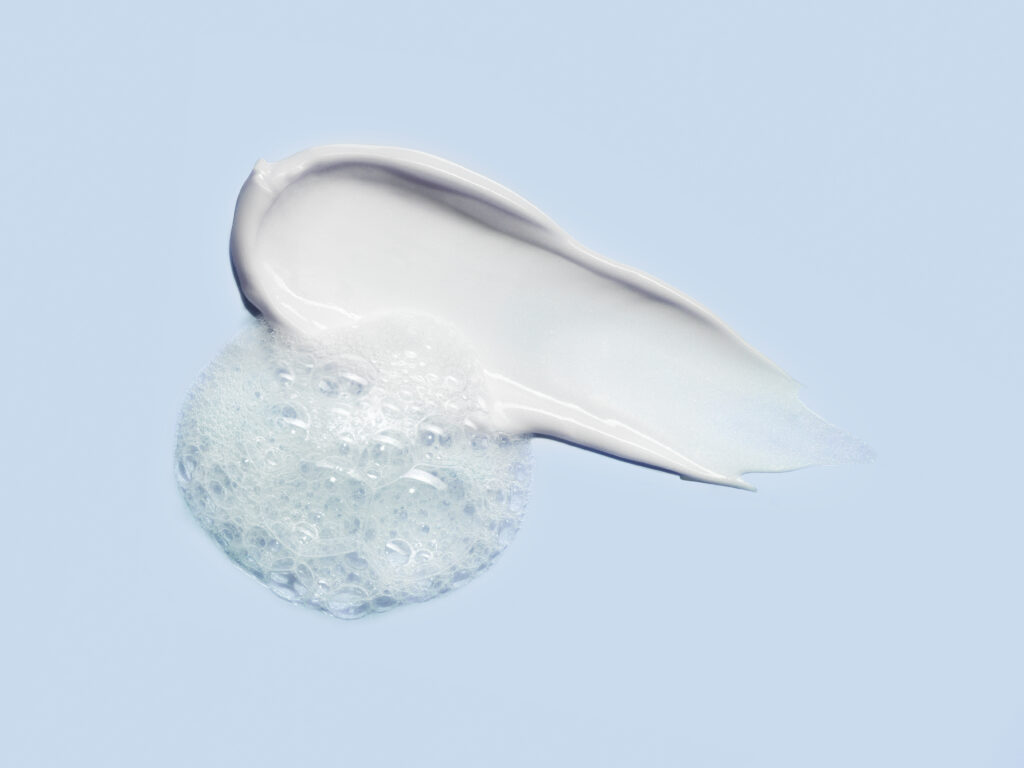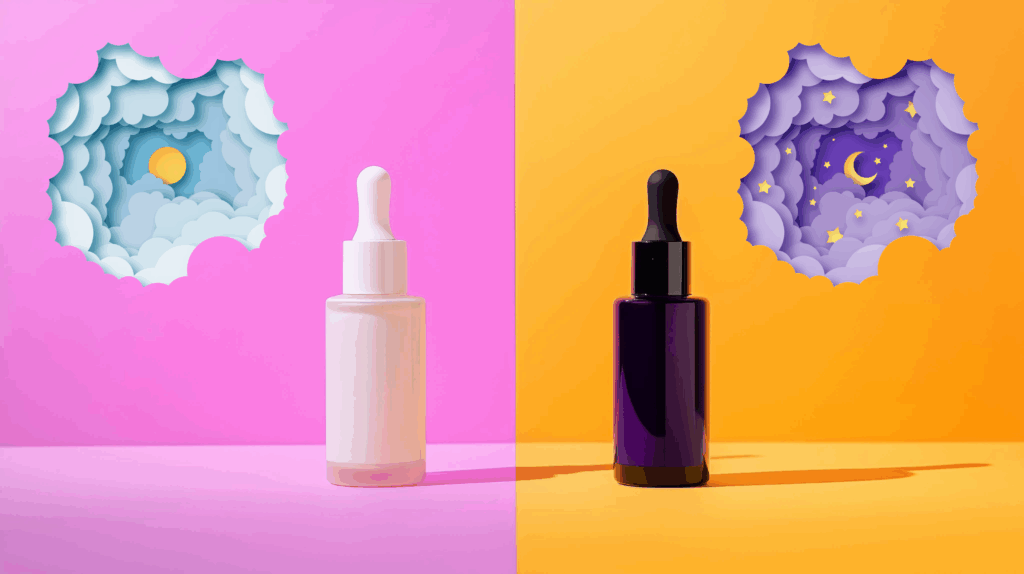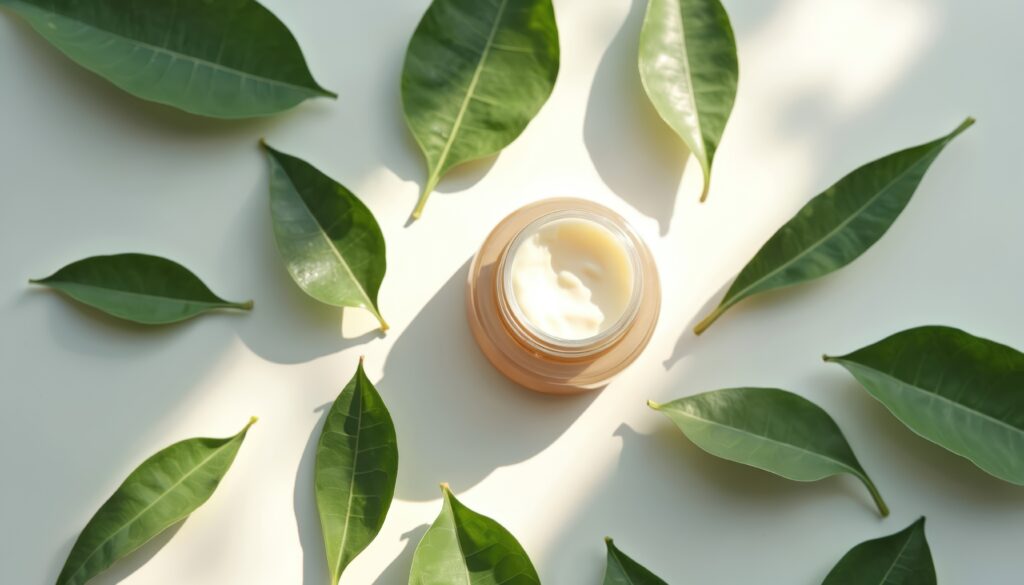Rethinking Skin Aging From the Inside Out
Skin aging isn’t just a surface-level concern—it’s a biological cascade influenced by environmental stress, cellular exhaustion, and increasingly, the skin microbiome. While many cosmetic formulators focus on oxidative damage, glycation, or UV-induced collagen breakdown, an often-overlooked player is the delicate balance of our skin’s microbial ecosystem. Disruption in this balance can quietly accelerate aging by compromising barrier function, increasing inflammation, and dulling regeneration processes at the cellular level.
Enter postbiotics—the bioactive metabolites produced during microbial fermentation. These compounds represent the next generation of skincare actives, offering high bioavailability, multitarget benefits, and compatibility with sensitive skin. Among the most promising of these is BioMic™ Fermentate, a potent postbiotic derived from Saccharomyces boulardii fermentation. For formulators aiming to build efficacy into anti-aging systems while supporting the skin microbiome, BioMic™ Fermentate provides a science-backed path forward.
The Aging Microbiome
Formulating effective anti-aging skincare today involves more than addressing wrinkles. The rise of exposome science has made it clear: pollution, UV radiation, stress, diet, and microbial dysbiosis all contribute to accelerated aging. According to a 2022 review in Dermatologic Therapy, the skin microbiome plays a pivotal role in regulating inflammation, maintaining barrier integrity, and influencing immune response—all of which decline with age.
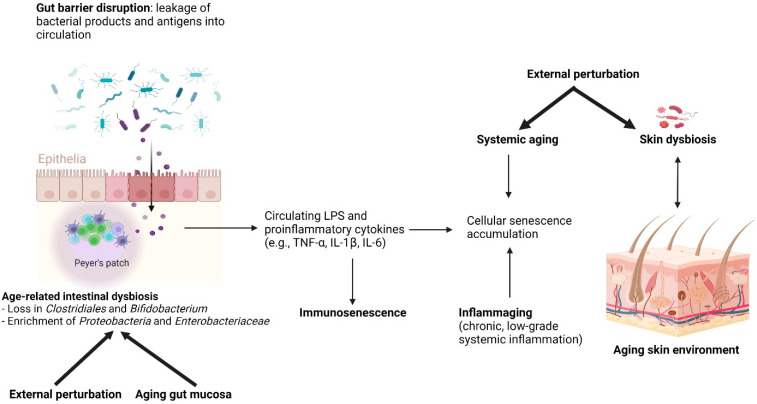
Lee, YB et al. How Microbiomes Affect Skin Aging: The Updated Evidence and Current Perspectives. Biomedicines. 2022. Figure 4. https://www.ncbi.nlm.nih.gov/pmc/articles/PMC9320090
Unfortunately, many traditional actives—while effective in isolation—can be disruptive to the microbiome. Retinoids, AHAs, and even preservatives may impair microbial diversity, leading to unintended side effects such as sensitivity or barrier dysfunction. This creates a conundrum: how can formulators deliver results without overburdening the skin?
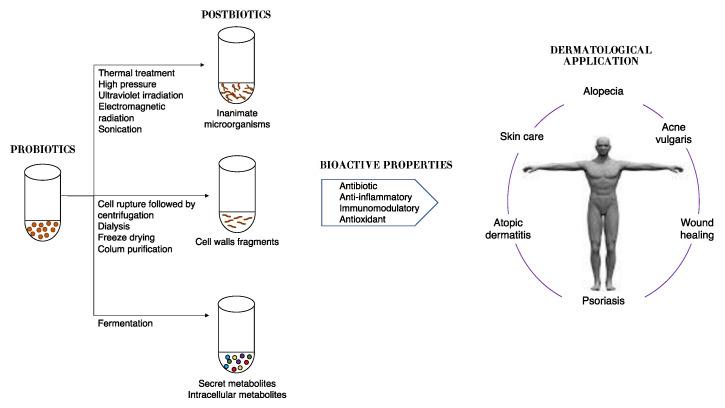
Kober, M. et al. Oral and Topical Probiotics and Postbiotics in Skincare and Dermatological Therapy: A Concise Review. Dermatologic Therapy. 2023. Figure 2. https://www.ncbi.nlm.nih.gov/pmc/articles/PMC10301930
The demand is now for ingredients that are not only clinically effective but also biologically respectful. Cosmetic brands are increasingly asked to formulate with sustainability, biocompatibility, and inclusive efficacy in mind. Fermentation-derived ingredients—particularly postbiotics—are uniquely suited to meet these needs. As highlighted in the 2023 review Oral and Topical Probiotics and Postbiotics in Skincare and Dermatological Therapy, postbiotics offer inflammation-reducing, antioxidant, and regenerative benefits without the formulation instability of live probiotics.
BioMic™ Fermentate: A Multifunctional Approach to Energy, Elasticity, and Repair
BioMic™ Fermentate is a postbiotic active produced via controlled fermentation and lysis of Saccharomyces boulardii, a probiotic yeast with a well-documented metabolome. Unlike simple extracts or isolated compounds, BioMic™ Fermentate contains a diverse spectrum of bioactive molecules—including organic acids, amino acid derivatives, phenolics, and vitamins—that act in synergy to support skin regeneration and resilience.

This complexity is critical. Instead of targeting one pathway, BioMic™ modulates multiple biological responses:
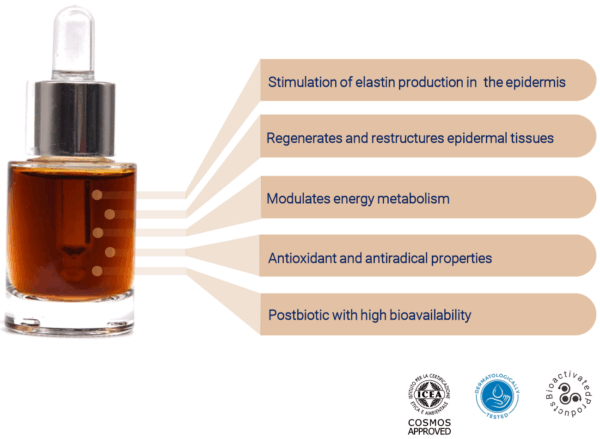
Importantly, these benefits are delivered without irritating the skin or disrupting the microbiome. Because postbiotics are non-living and already metabolized, they are inherently more stable, safer for sensitive skin, and easier to formulate across various pH and preservative systems.
BioMic™ Fermentate Delivers 3 Core Functions: Regeneration, Energy, and Defense
As the demand for microbiome-compatible, multifunctional actives continues to rise, formulators are rightly asking: Does it perform—and can we prove it? With BioMic™ Fermentate, the answer is a confident yes.
What sets this active apart is not just its biological richness—it’s the quantifiable impact it delivers across skin regeneration, oxidative stress protection, and metabolic reactivation.
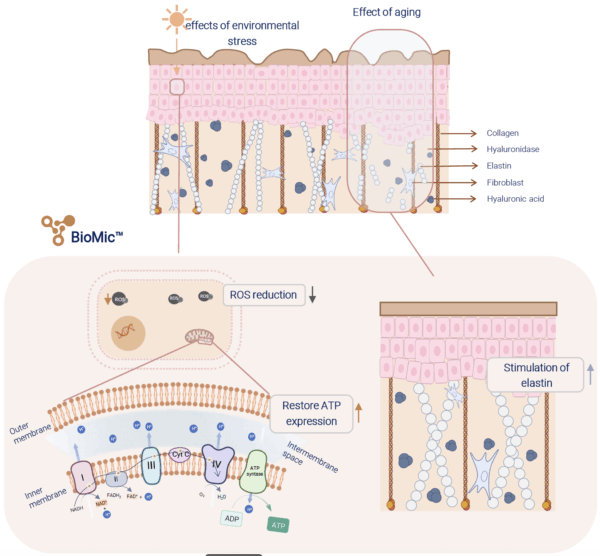
The following in vitro studies demonstrate how BioMic™ Fermentate addresses key hallmarks of skin aging through multiple mechanisms of action:
From a formulation perspective, BioMic™ is water-soluble, COSMOS-approved, biodegradable, and compatible with vegan and halal product lines. Its recommended usage level (2–5%) offers flexibility across skin, hair, and body care systems. The inclusion of preservatives like sodium benzoate and potassium sorbate ensures compatibility with a wide range of emulsions and serums.
Formulating for What’s Next: Efficacy, Microbiome, and Minimalism Aligned
As the beauty industry shifts toward skin longevity, microbiome-friendly formulation, and biotech-driven efficacy, postbiotics like BioMic™ stand at the convergence of these priorities. They offer formulators a way to create products that are:
According to a 2022 paper in Biomedicines, microbial metabolites are increasingly recognized as signaling molecules capable of reshaping skin behavior at the cellular level . Rather than merely “protecting” the microbiome, next-gen actives like BioMic™ empower it—restoring vitality and strengthening the skin’s ability to age more slowly and healthfully.
As the skin care landscape evolves, formulators who embrace these next-generation tools will lead the way in creating products that perform without compromise.
Fermentation Unlocks the Next Era in Skin Longevity
The future of anti-aging is not just about targeting wrinkles—it’s about restoring skin’s energy, structure, and resilience at the microbial level. BioMic™ Fermentate offers a credible, performance-driven, and formulation-ready solution for cosmetic chemists seeking to meet the rising demands of efficacy, safety, and microbiome integrity. By incorporating postbiotic innovation into your next launch, you’re not just extending shelf life—you’re extending skin vitality.
👉 Ready to transform how you formulate for aging skin?
Explore BioMic™ Fermentate and request a sample below or contact us today for technical documentation.
Resources:
- Lee, YB et al. How Microbiomes Affect Skin Aging: The Updated Evidence and Current Perspectives. Biomedicines. 2022. https://www.ncbi.nlm.nih.gov/pmc/articles/PMC9320090
- Kober, M. et al. Oral and Topical Probiotics and Postbiotics in Skincare and Dermatological Therapy: A Concise Review. Dermatologic Therapy. 2023. https://www.ncbi.nlm.nih.gov/pmc/articles/PMC10301930
- Huang, H. et al. The Role of Microbial Metabolites in Skin Health and Disease. Biomedicines. 2022. https://www.mdpi.com/2227-9059/10/11/2857Kim, H. et al. Fermented Ingredients as New Cosmeceuticals. Cosmetics. 2021. https://www.mdpi.com/2079-9284/8/2/35
- Active Cells Biotechnology. BioMic™ Fermentate Brochure. 2025.



